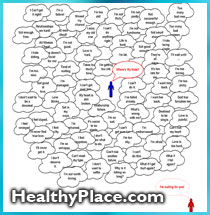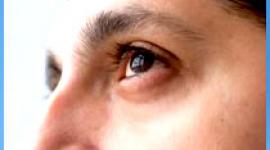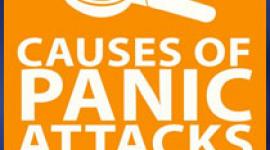The Role Thoughts Play in Anxiety and Panic
The research has now shown that despite the severe disabilities, once the Disorders have been correctly diagnosed, they can be easily treated. While medication can be necessary for some people in the short-term, the most effective form of treatment which has shown long-term results is Cognitive Behavioral Therapy. Cognitive Behavioral treatment is a number of specific treatments designed for each separate Anxiety Disorder. One of the main features of this therapy is teaching people to understand and correct their anxiety-producing thoughts. With these skills people can then begin to work with their avoidance behavior.
 How many times have we said 'What If?' 'What if I have an attack, What if I can't do it? What if people see me?' What if this is causing most of our problems? It is! Many of us have no awareness of what we are thinking about. Our thinking is so much a part of us, we don't pay attention to the process. Without realizing it, our thoughts dictate and control our life. When we have an Anxiety Disorder, the way we think creates so much of the fear we feel, which in turn increases the symptoms; which creates further fear and around-and-around we go!
How many times have we said 'What If?' 'What if I have an attack, What if I can't do it? What if people see me?' What if this is causing most of our problems? It is! Many of us have no awareness of what we are thinking about. Our thinking is so much a part of us, we don't pay attention to the process. Without realizing it, our thoughts dictate and control our life. When we have an Anxiety Disorder, the way we think creates so much of the fear we feel, which in turn increases the symptoms; which creates further fear and around-and-around we go!
It is difficult for people who don't have an Anxiety Disorder to realize why it is so difficult to break our negative thought patterns. It is not a matter of replacing negative thoughts with positive ones. Positive thinking doesn't work for many people in the early stages of recovery. Basically, because we don't believe what we are saying to ourselves. If it was that easy, no one would have a problem in the first place! It can seem pointless telling ourselves we'll feel better tomorrow when we have seen so many 'tomorrows' go by and there has been little or no change.
Instead of positive thinking, we need to change our whole perception of what is happening to us. We need to see how our thoughts create so much of our fear, which in turn creates many of the symptoms. Once we can see this, we can see how the anxiety and/or panic are actually reactions to our thoughts and that our thoughts are not a reaction to the anxiety and/or panic. Once we can see this, we can reverse our thinking from 'What if'...to 'So what!. This is the way to Power and Freedom.
We react to our thoughts and feelings never realizing our thoughts and feelings are fleeting moments. We don't see each thought as being separate. Instead, we see the continual progression of our thoughts and the feelings caused by them as something solid. Not seeing the progression from one thought to another, not seeing the progression from one feeling to another, creates the fear. The overwhelming force of the anxiety and panic can be quite violent and it does feel as if something terrible is happening to us. But if we can learn to see behind its seemingly solid appearance, we will see how it is happening and why there is nothing to fear. Seeing why there is nothing to fear, we can begin to take our Power back! Power over our thoughts, power over the Disorder and power over our lives!
Power means freedom!
next: The Line between Anxiety and Depression
~ all articles on insights into anxiety
~ anxiety-panic library articles
~ all anxiety disorders articles
APA Reference
Gluck, S.
(2008, October 2). The Role Thoughts Play in Anxiety and Panic, HealthyPlace. Retrieved
on 2026, March 4 from https://www.healthyplace.com/anxiety-panic/articles/the-role-thoughts-play-in-anxiety-and-panic



